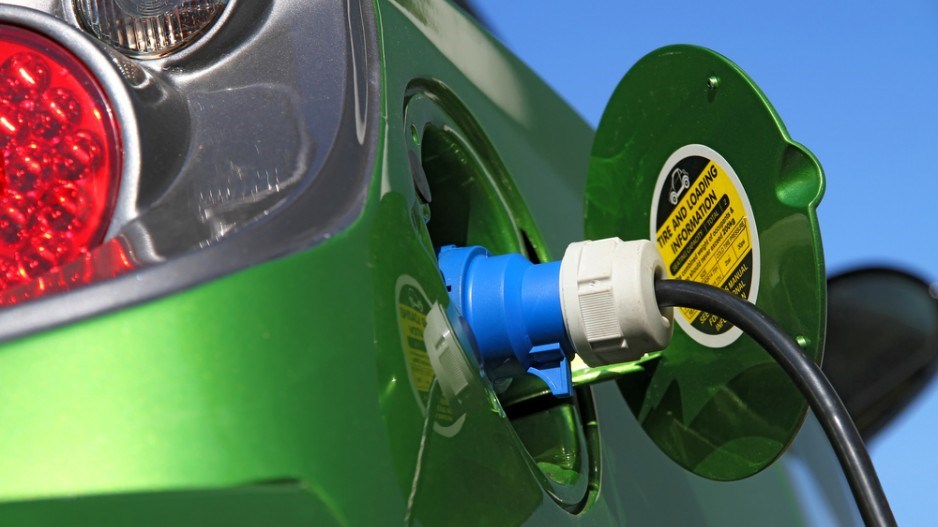I couldn’t figure it out. Why was Cara Clairman, CEO of Ontario-based non-profit Plug’n Drive, persuading people to drive more electric vehicles (EVs) at Simon Fraser University Centre for Dialogue’s inaugural Renewable Cities Global Learning Forum last month? Where were the carmakers with their massive advertising budgets?
Her main goal was clearly environmental: EVs are a big key to cities reducing their carbon footprint. Road transport is responsible for almost a third of total greenhouse gas (GHG) emissions, and EVs can reduce vehicle GHGs by up to 90% – especially in B.C. with our hydroelectric power. They also seriously reduce killer air pollution. But with 15 different EV models now on the market, from 10 or more major mainstream carmakers, why do EVs need a non-profit like Plug’n Drive to push sales?
Like many Canadians, I used to think it was because you had to be a green freak to put up with the inconvenience and added cost of an electric car. But speakers at the conference blew that one away. Clairman estimated the savings for a typical EV, based on total cost of ownership, at around $2,000 over the life of the car. That’s boosted by rebates like the $5,000 the B.C. government offers. Many cities are also offering free parking, public charging stations, free charging, mandated hookups in new homes, HOV lane access or cheap overnight charging rates. That partly explains why EV sales in Canada are doubling annually.
But many believe that savings aren’t what drive car sales.
“People buy cars emotionally,” said Eve Hou, a Metro Vancouver air quality planner.
“The revolution in e-vehicles will be driven by the fact that they are fun to drive, with lots of power and torque, and you don’t ever have to go to the gas station,” agreed Zach Shahan, director of CleanTechnica.com.
Talk to Jerry Kroll if you have any doubts about the fun and convenience of driving EVs. He’s a race-car driver and CEO of New Westminster-based ElectraMeccanica (smallev.com), which has just launched a prototype three-wheel single-person commuting EV called the Sparrow.
“E-cars make conventional internal combustion engine cars seem like a rotary dial phone or a fax machine,” said Kroll. (An electric car just set a world record for accelerating from zero to 100 km/h in 1.8 seconds.)
“Tesla is No. 1 in the world for lots of reasons: performance, safety, satisfaction, value. No other vehicle being sold today comes close, at any price.”
EVs have massive torque, no gears and few moving parts.
“An electric vehicle has the same maintenance schedule as your refrigerator. You plug it in, maintain tire pressure, washer fluid and keep it clean,” said Kroll.
“In 15 years being around electric vehicles, I’m not aware of anyone who bought an EV and then went back to gasoline.”
Kroll added that range is not an issue for owners, noting that 83% of Canadians commute less than 30 kilometres each way. OK, so they’re fun to drive, and cities are doing a lot to encourage them, but why are 47% of Canadians not even aware of how EVs perform?
Shahan had a simple answer: today’s car industry is too invested in the internal combustion engine and its vast maintenance and repair after-market. Car companies don’t want EVs – even their own – to take over the market. That ties in with Simon Fraser University professor Jonn Axsen’s research showing a zero-emissions vehicle mandate like California’s is vital to triggering new supply.
Kroll thinks it’s too late to avoid a disruptive triumph by EVs.
“We hit the tipping point when Tesla went public and [its] $35 stock hit $100. It’s currently at $247.”
But actually, as Gil Friend, chief sustainability officer for Palo Alto, reminded us, the ultimate goal is not more, better cars. It’s “how do we make it more convenient for anyone, anywhere, at any time, not to get into a car and drive?”
Did someone say “transit plebiscite”?
Peter Ladner ([email protected]) is a co-founder of Business in Vancouver. He is a director of the Better Transit and Transportation Coalition and the author of The Urban Food Revolution.




